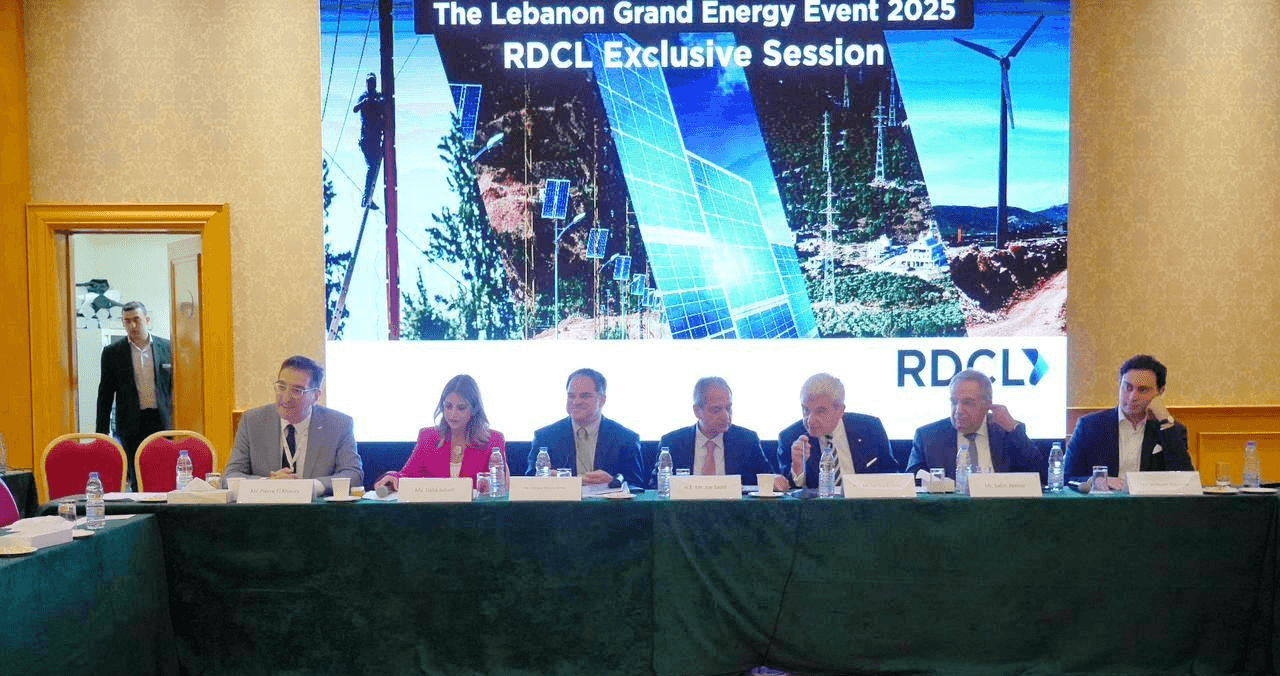What does the regulator and legislation have to do with the energy structure in Lebanon?

Participants in the "Beirut Energy Conference" yesterday unanimously agreed that activating the Electricity Regulatory Authority and updating legislation are the main priority for restructuring the energy sector in Lebanon, while stressing that decentralization of production and renewable energy are part of the solution, provided that control is tightened and regulatory frameworks are applied. The meeting also stressed that financing remains the biggest challenge for industrialists, which calls for urgent banking and regulatory reforms.
These results came during a dialogue session organized by the Association of Lebanese Businessmen and Women (RDCL) within the opening of the "Beirut Energy Conference" at the Metropolitan Hotel, and managed by the member of the Board of Directors of the Association Dalia Jbeili, with the participation of Minister of Energy and Water Joe Seddi, Minister of Industry Joe Issa Al-Khoury, President of the Association of Industrialists Salim Al-Zaani, Regional Director of the World Bank in Lebanon Enrique Blanco Armas, Secretary of the Lebanon Branch of the World Energy Council Pierre Al-Khoury, and President of the Poultry Breeders Syndicate William Boutros.
Minister of Energy Joe Sadi stressed the importance of the independence of the regulator and the separation of generation, transmission and distribution functions to open the way for private investments, pointing to the need for a gradual transition to natural gas to reduce cost and achieve sustainability. For his part, Minister of Industry Joe Issa Al-Khoury focused on reducing the cost of energy for the national industry through microgrids, expanding Net Metering, and linking tariffs to quality and reliability, while supporting decentralization of production and more flexible financing procedures.
The regional director of the World Bank, Enrique Blanco Armas, announced a new support program for renewable energy, including the establishment of a national control center, the supply of additional solar energy capacity, the rehabilitation of some hydroelectric plants, and the strengthening of transport networks, in addition to institutional reforms to open the sector to quality investments. In turn, the head of the Industrialists Association, Salim Al-Zaani, pointed out that the cost of electricity for industrialists far exceeds their competitors, calling for quick solutions such as mini-grids and early thinking with hydrogen technologies.
The President of the Poultry Breeders Syndicate, William Boutros, said that hybrid solutions between solar energy and storage have proven successful in securing cheaper and more sustainable energy for the sector, while Pierre El Khoury stressed the need to develop regulatory frameworks and energy efficiency to attract broader investments and ensure the reliability of nutrition.
The Lebanese energy sector has been suffering for years from weak infrastructure, high costs, and frequent interruption of nutrition, which puts pressure on industry, agriculture, and services. The country suffers from a lack of resources and funding, prompting the search for decentralized solutions and partnerships with the private sector to secure energy more efficiently and sustainably.
The activation of the Electricity Regulatory Authority is a central step to enhance transparency, ensure performance monitoring and segregate generation, transmission and distribution functions. This body represents an essential mechanism for implementing reforms and protecting consumers from abuses, as well as facilitating the attraction of private investments in conventional and renewable energy.
In addition, the international community and donors attach great importance to supporting renewable energy projects in Lebanon, including solar, natural gas, and hydropower, as well as improving transmission and distribution networks. This approach is necessary to reduce operational cost and increase reliance on clean and reliable sources.
Finally, experts emphasize that decentralization of production, such as mini-grids and autonomous solar farms, can be an essential part of the solution, provided that it is accompanied by strict regulatory frameworks and effective state oversight to ensure the achievement of sustainability and economic efficiency goals, and to prevent any illegal exploitation or conflict of interest.